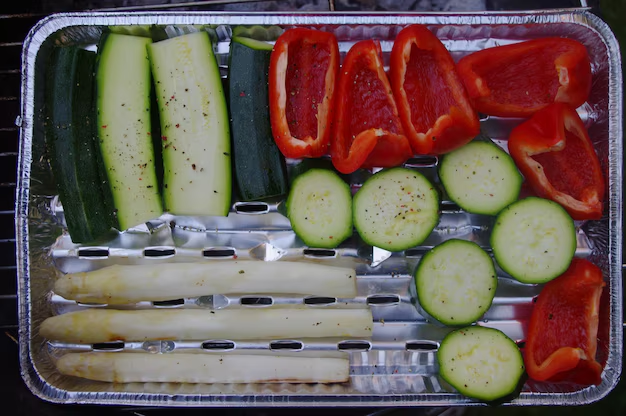Discovering the Shelf Life of Onions: Do They Last Longer in the Refrigerator?
Onions are a staple in kitchens worldwide, bringing flavor and depth to countless dishes. Yet, the question of how to store onions to maximize their shelf life often lingers in the minds of home cooks. A common debate is whether onions last longer when stored in the refrigerator or if they are better off at room temperature. In this comprehensive guide, we'll explore this topic from all angles, giving you the insights you need to keep your onions fresh and flavorful.
🧅 The Basics of Onion Types and Their Shelf Lives
Before diving into storage methods, it's essential to recognize the different types of onions and how their shelf lives can vary:
- Yellow Onions: These are the most common type and are known for their robust flavor. They typically have a longer shelf life compared to other varieties.
- Red Onions: With their vibrant color and mildly sweet taste, red onions are a favorite for salads. However, they might not last as long as yellow onions.
- White Onions: Known for their sharp, robust flavor, white onions have a shorter shelf life than yellow onions.
- Sweet Onions: These onions have a high sugar content, making them prone to spoilage more quickly.
Understanding these differences is crucial, as the appropriate storage method can vary based on the onion type.
Proper Storage: Room Temperature vs. Refrigeration
Storing Onions at Room Temperature
Ideal Conditions:
Onions thrive in a cool, dry, well-ventilated space. When stored in a pantry or a dark corner of the kitchen, they can stay fresh for several weeks.
Pros:
- Air Flow: Good ventilation helps prevent moisture buildup, which can lead to rot.
- Temperature Control: Cooler conditions (but not as cold as a fridge) prolong their shelf life.
Cons:
- Limited Space: If room conditions become too warm or humid, onions can sprout or rot.
- Odor: Onions emit a strong smell, which might permeate the kitchen over time.
Benefits of Refrigerating Onions
Ideal Situations:
Refrigeration is especially beneficial for cut or sliced onions. Keeping them in an airtight container in the fridge slows down spoilage and reduces odor transfer.
Pros:
- Extended Freshness: The fridge’s low temperature decreases the metabolic rate, delaying spoilage.
- Reduced Sprouting: Cooler conditions inhibit the growth of onion sprouts.
Cons:
- Moisture Risks: Refrigeration can increase humidity around the onion, leading to mold or a mushy texture if not properly managed.
- Flavor Changes: Prolonged refrigeration can alter an onion’s taste, especially sweeter varieties.
🥡 Key Tips for Storing Cut Onions:
- Airtight Containers: Always use a tightly sealed container to prevent the onion's smell from affecting other foods.
- Paper Towels: Place a paper towel inside the container to absorb excess moisture.
- Use Quickly: Even in the fridge, it's wise to use cut onions within a week for optimal flavor.
Factors Affecting Onion Shelf Life
Humidity Levels
High humidity can be the enemy of stored onions, causing them to become limp and prone to mold. Ensuring low humidity, especially in storage areas, is vital.
Light Exposure
Onions stored in direct light might sprout, as light can stimulate growth. A dark, cool space is ideal for prolonging shelf life.
Cross-Contamination
Onions can absorb strong odors and flavors from nearby foods, especially in the refrigerator. Protect them by using airtight containers or dedicated storage baskets.
Practical Tips for Extending Onion Shelf Life
- Separate Storage: Keep onions away from potatoes. Potatoes emit moisture and gases that can accelerate onion spoilage.
- Mesh Bags: Use mesh bags for storing whole onions. They allow air circulation, reducing the risk of moisture buildup.
- Regular Inspection: Regularly check your onions for any soft or discolored spots and remove spoiling ones to preserve the rest.
🍽️ Creative Uses for Leftover Onions
Don't let leftover onions go to waste! Here are some inventive ways to use them:
- Pickled Onions: Thin slices pickled in vinegar add a zesty note to tacos and salads.
- Onion Jam: Caramelize onions with sugar and balsamic vinegar for a sweet-savory spread.
- Infused Oils: Use leftover onions to create flavored oils, perfect for drizzling over dishes.
FAQs About Onion Storage
Why do onions rot quickly when stored with potatoes?
Onions and potatoes emit moisture and gases that can accelerate each other's spoilage. It's best to store them separately to maintain freshness.
Can you freeze onions?
Yes! Freezing onions is an excellent option for preserving them. Chop and freeze them in airtight bags for easy use in cooked dishes.
Are sprouted onions safe to eat?
Sprouted onions are generally safe to eat, though their flavor may be more intense. Trim the sprouts and use the onion quickly.
📝 Summing It Up
To maximize the shelf life of onions, consider their type and intended use. Though storing whole onions in a cool, dark place works best for longevity, refrigeration is ideal for cut onions. Prevent moisture and avoid mixing onions with potatoes. Whether you choose room temperature or the fridge, monitoring your onions regularly and implementing smart storage practices will ensure their freshness and flavor.
🌟 Quick Recap: Storage Tips
- Dark and Cool: Whole onions should be in a dry, well-ventilated space.
- Refrigerate Cut Onions: Store in airtight containers, use within a week.
- Avoid Potatoes: Store separately to prevent accelerated spoilage.
- Check Regularly: Remove any spoiling onions to protect the rest.
By applying these practical tips and insights, you'll enjoy the vibrant taste of onions in all your culinary creations without the worry of premature spoilage.

